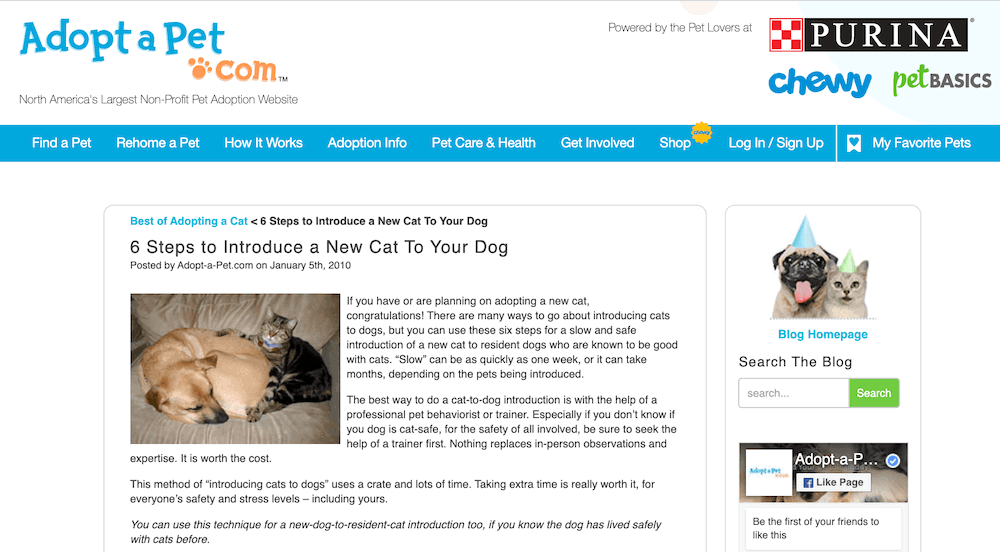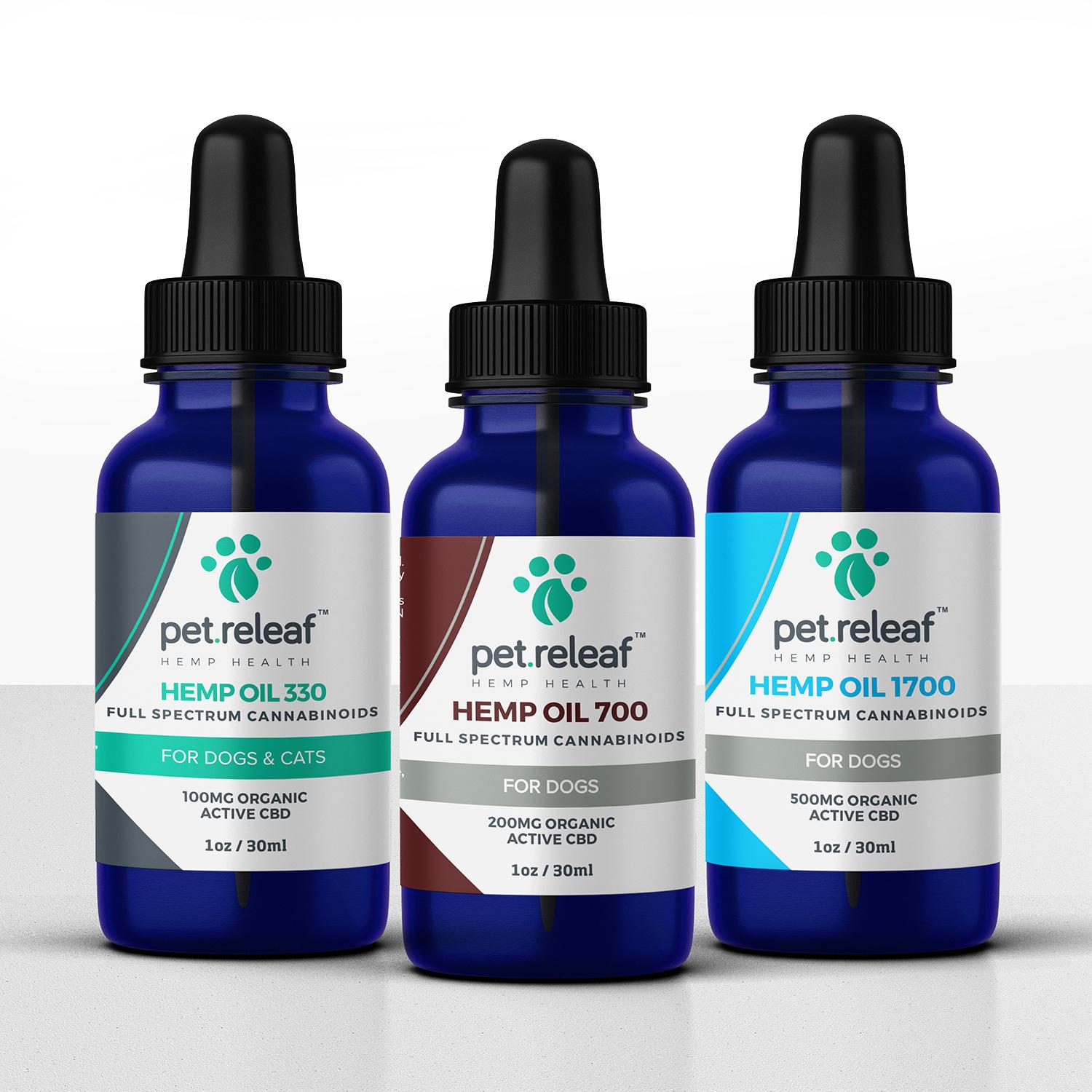CBD for Pets: Cats and Dogs
Posted by Guardian Athletic on Oct 16, 2020

The use of cannabidiol (CBD) to treat humans and pets has become very popular and is widely touted as a cure for hundreds of ailments as well as pain management. Like most non-mainstream treatments, however, there is confusion as to what CBD is, how it is used, and whether it actually works. Part of the confusion is because there have been few scientific studies conducted to test the benefits and risks of treating your pet with CBD.
Altеrnаtіvе Mеdісіnеѕ

CBD is considered an “alternative medicine,” which is the broad term that refers to non-traditional therapies. In other words, while there are many widely-known types of alternative medicine such as acupuncture and chiropractic care, these methods are not recognized by the scientific community, and therefore are considered alternative.
While there is no denying the value to many patients who claim to benefit from these treatments, the debate among doctors is whether the results are due to a placebo effect since science has not proven the remedies to be effective in curing disease or improving overall health. According to the Harvard Medical School, the benefits of CBD has been proven to reduce seizures in humans, and may help with insomnia and reducing pain due to arthritis, but further studies are needed to see if there are other benefits or risks. Fortunately, due to the increased interest, more studies are being conducted to examine the use of CBD for humans and pets.
CBD Rеѕеаrсh

For the most part, however, pet care specialists believe that CBD is safe for pets if given proper doses. However, critics argue that because of the lack of regulations and few scientific studies, CBD should not be used to treat pets. This rise in popularity, however, appears to be fueled more by dollars than sense. According to Columbia University neurologist Margaret Haney, there is little scientific evidence to support or justify the surging CBD market.The use of CBD pet products has increased dramatically with an estimated $500 million in 2018 to a projected increase to over 1.1 billion dollars in 2020.
As scientists continue to study the effects of cannabidiol, we are learning more about the alleged benefits of CBD in the treatment of humans and pets. The boom in CBD sales is largely due to the legalization of CBD for human use. Since July 2018, 47 states have legalized CBD for human use. This has allowed pet owners to use CBD for their pets even though veterinarians are prohibited from initiating a discussion of using the use of CBD to treat pets. But this does not mean you can’t bring it up to them to get their input, go ahead and ask about it!
CBD Regulation for Pets
Currently, the sale of CBD, especially for pets, is largely unregulated and the FDA has not approved any CBD products for pets. As a result, there is confusion. Although CBD is a chemical compound found in cannabis plants, CBD is not the same as marijuana. The cannabis plant has different species of flowering plants including hemp and marijuana. CBD is found in hemp, the non-psychoactive type of cannabis plant, which means your pet won't get “high” because hemp has a very extremely low level of THC (tetrahydrocannabinol), the element that is psychoactive. Significantly, THC is toxic to animals, so you should only use CBD pet products that contain no THC. The safest form of CBD for your pets is a CBD isolate formula, it contains zero THC and no other cannabinoids.
This also means you should never give your pet CBD products made for humans because they may contain additional ingredients that are harmful to pets, including harmful amounts of THC. Needless to say, never give your pet marijuana. Also, always follow dosing instructions.
CBD Uѕеѕ in Pets

Pet owners use CBD to treat pets for many reasons including anxiety, arthritis, nausea, stress, seizures and pain relief from cancer and other diseases. There are various ways to treat pets including cannabis oil, capsules or edible treats. While CBD oil can be administered topically, it is more commonly administered orally and is often infused with coconut oil. CBD oil can also be mixed with your pet's food.
Shopping for CBD pet products can be confusing due to the lack of regulation which means the labeling is not always consistent. Also, only veterinarians in California may legally initiate a conversation about CBD treatment for pets, but veterinarian in other states are allowed to answer questions when asked; so definitely start a conversation before using CBD for your pet.Look for products that follow Good Manufacturing Practice (GMP) or have been approved by the National Animal Supplement Council (NASC) to ensure high quality ingredients.
Gіvіng Yоur Pеt CBD
When giving CBD to your pets, start with a low dose and watch for side effects including nausea, upset tummy, vomiting, incontinence or lethargy. According to veterinarian Casara Andre, the founder of Veterinary Cannabis Education & Counseling, the limited research suggests the CBD does not post significant risk to pets, and few risks have been identified. Significantly, while the lack of studies is a concern, overdosing is the most common ill effect of CBD use in pets. According to the ASPCA Animal Poison Control Center, there has been an increase of calls regarding dogs eating more than recommended dosages of CBD treats. While mild cases can be treated at home, more serious cases will require medical treatment and can result in symptoms similar to a THC overdose. Because THC is toxic to pets, a large dose of THC can be very dangerous and can result in serious medical complications.
While sales of CBD pet products continue to surge, the science is catching up to provide evidence of the benefits and risks of CBD. In the meantime, if your pet needs medical attention, you should always consult a pet care specialist and discuss all options, including the use of CBD. The marketing of CBD pet products is very aggressive, and unfortunately not always accurate. Do you homework, talk to your veterinarian, and make informed choices about CBD pet products. If you decide to use your CBD pet products be sure to follow instructions.
REFERENCES
Grinspoon M.D., Peter. “Cannabidiol (CBD) – what we know and what we don't.” Harvard Health Publishing. June 5, 2019. https://www.health.harvard.edu/blog/cannabidiol-cbd-what-we-know-and-what-we-dont-2018082414476
Statista. “Total U.S. cannabidiol (CBD) consumer sales from 2014 to 2022 (in million U.S. dollars).” Accessed on Julу 9, 2019. https://www.statista.com/statistics/760498/total-us-cbd-sales/
Peachman, Rachel Rаbkіnѕ. “Should you try CBD for your pet?” Consumer Reports. April 11, 2019. https://www.consumerreports.org/cbd/should-you-try-cbd-for-your-pet/
ASPCApro. “CBD, hemp pet treats dangers and overdose treatments.” Accessed July 10, 2019. https://www.aspcapro.org/resource/cbd-hemp-pet-treat-dangers-overdose-treatments

